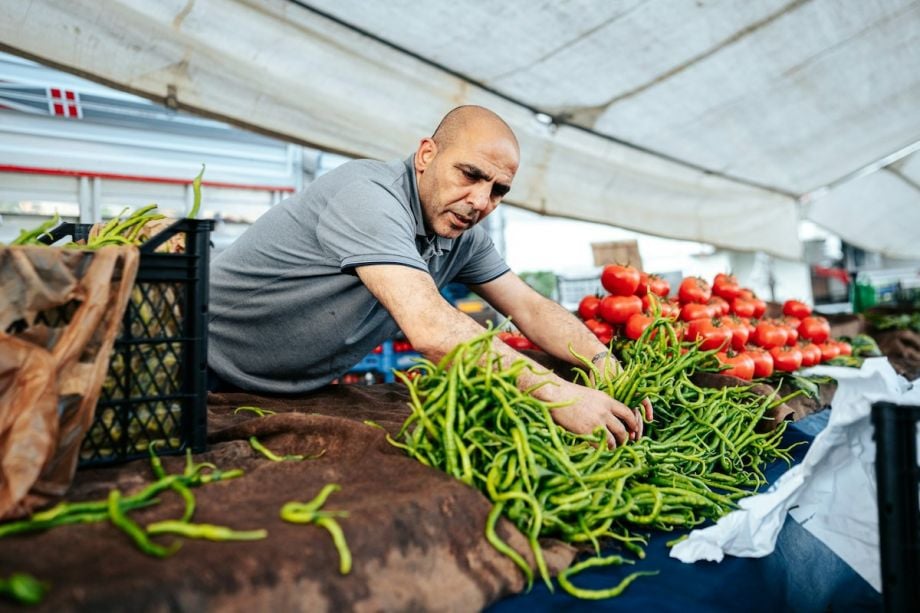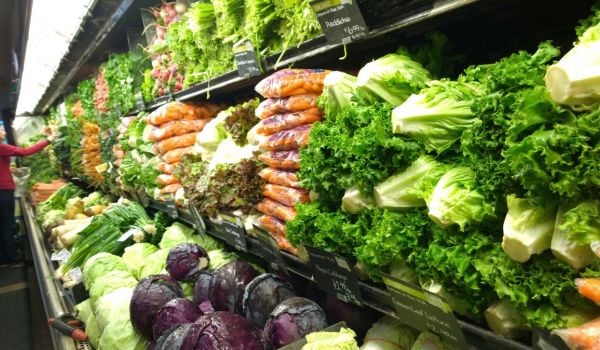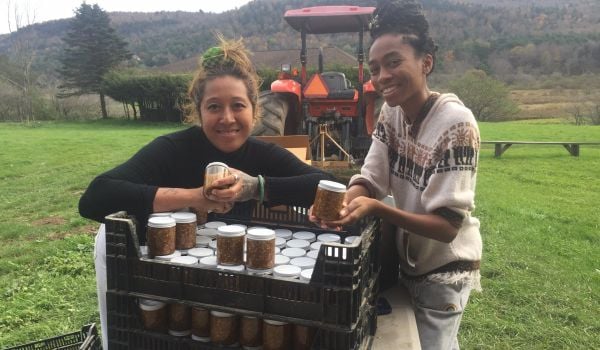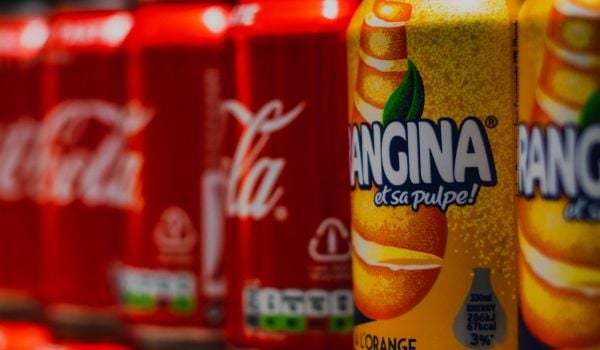Food is many things in our lives. It’s a cultural connector, bridging relationships with people, places, and our heritage. Food is medicine, providing us with nutrients integral to our well-being. It’s also a renewable resource; the way we grow, transport and consume food directly impacts our climate and local environment.
Above all, food is a human right. Yet our food system only values food for one thing: profit. It’s become an industrialized machine that prioritizes cheap production and corporate gains over the well-being of people, local economies, and the environment. In this pursuit of maximum financial gain, food has been reduced to a mere commodity.
The result? One in three residents of Colorado, where I live, lacked reliable access to nutritious food in 2021. In the U.S., people don’t go hungry because of a lack of food (in fact, we waste 40% of food produced for consumption globally). People go hungry because food is unaffordable for them.
It’s high time we recognize the flaws in this system and take action to build a more equitable and sustainable approach, one that embraces widespread access to healthy foods: Universal Basic Food. It’s a transformative idea that could guarantee access to nutrient-dense, culturally relevant food for all, regardless of income.
The hidden cost of ‘cheap’ food
How can a food system as broad and robust as ours allow people to go hungry?
Most of the brands we see in the grocery store are owned by only a handful of companies. Food and beverage multinationals play a crucial role in determining what a large part of the global population eats and drinks. They have arguably been a driving force in the increased global consumption of processed foods that contain large amounts of salt, sugar and fat — foods that have been specifically engineered to be more appetizing, or “hyperpalatable,” with outsized amounts of these components drive profit for these companies.
Big food and beverage companies engage in research that undermines public health strides while lobbying our governments, and therefore public policy, for its private interests rather than the public good. Today, just a handful of powerful companies control almost 80% of the market share of grocery items.
They’re also influencing public opinion. The Washington Post reported last year that food industry conglomerates are paying registered dieticians to post videos that promote diet soda, sugar, and supplements.
So while food corporations are working to increase their profits through pushing processed, unhealthy food that is “cheap,” we all experience the impact of inflation on our food budgets, making it more difficult to eat fresh, nutritious foods.
The USDA’s MyPlate dietary guidelines recommend a framework for a healthy diet. To follow those guidelines would cost a household of four between $12,000 and $14,000 annually. Meanwhile, a dual-income household with two adults working full-time jobs that pay the federal minimum wage only pulls in $30,000 annually. Eating healthy would require nearly half of their income. All of this adds up to a higher likelihood of diet-related disease based on income and race.
The need to rethink agricultural subsidies
Where does corporate social responsibility end and the government intervene?
The U.S. government plays a significant role in shaping our food system through agricultural subsidies. Unfortunately, a whopping 49% of subsidies go toward producing just three crops: corn, wheat and soybeans. This has led to an overabundance of these crops in our food supply, particularly in highly processed foods — think of the cereal aisle — that contribute to various health issues.
Most susidies go towards wealthy farmers growing these commodity crops, leaving smaller, local farmers vulnerable. Through the Emergency Food Assistance Program (TEFAP), the federal government buys these excess crops and gives them to food pantries to distribute. Meanwhile, people experiencing hunger have no say in what foods should be available or best for them.
Value-chain coordination
By prioritizing community involvement in decision-making, we could transition towards a food system that values equity, sustainability and health above corporate profits.
Instead of corporate lobbyists working to keep corn heavily subsidized so they can make cheap, processed foods to maximize their profit, what if communities got to say that free-range eggs are a basic food item to which they need access?
This kind of value-chain coordination, guided by the values and preferences of the community, could allow food procurement to address historical and systemic challenges embedded in the current industrial food system. Value-chain coordination could embrace food as a fundamental human right.
Here in Colorado, we’ve seen the start of values-chain coordination reflected in recent state laws. In 2022, the House passed a bill requiring all egg-laying hens to be housed in a cage-free environment, advancing animal welfare. Voters also passed Healthy School Meals for All, providing free lunch for all public school students and sourcing food from local farmers. With schools’ significant purchasing power, producers are already strategizing how to leverage this new initiative to strengthen the local food systems.
Universal Basic Food could do the same, altering how governments and nonprofits alleviate hunger.
Each community has unique needs, preferences and cultural relationships with food. To address these specificities, Universal Basic Food empowers local communities to determine the food values most important to them. From sourcing and growing practices to supporting local farmers, the utility members would have a say in shaping their food system, ensuring it aligns with their vision of health and justice.
Evolving the food pantry to Universal Basic Food
At Metro Caring, the anti-hunger organization where I work in Denver, we’re initiating our own small-scale Universal Basic Food pilot program. By securing “never-out” items for our Fresh Foods Market, a free grocery store-style resource for people experiencing food insecurity, we aim to provide a glimpse into how this community-centered approach can transform access to nutritious food for those in need.
We are learning how a community could determine Universal Basic Food items and their own values, and we are working to understand how to build relationships with local producers to source our food from the region.
Farmers need reliable access to markets to ensure a living wage for themselves and their workers, and our community needs access to fresh, nutrient-dense food. By redirecting big spending to community governance, we can make choices that make sense for the environment, people and our local economies.
The industrial food system as it stands perpetuates harm to our health, local economies and the environment while upholding chronic hunger in the United States. To break free from this harmful cycle, we must recognize food as a basic human right, embrace the cultural significance it holds, and prioritize sustainability and equity over corporate profits.
Universal Basic Food is not just a utopian idea. It’s a tangible solution that empowers communities to transform their food systems, paving the way for a healthier, more just future.
Emily Settlecowski is the manager of strategic initiatives at Metro Caring in Denver.





_600_350_80_s_c1.jpg)











Add to the Discussion
Next City sustaining members can comment on our stories. Keep the discussion going! Join our community of engaged members by donating today.
Already a sustaining member? Login here.